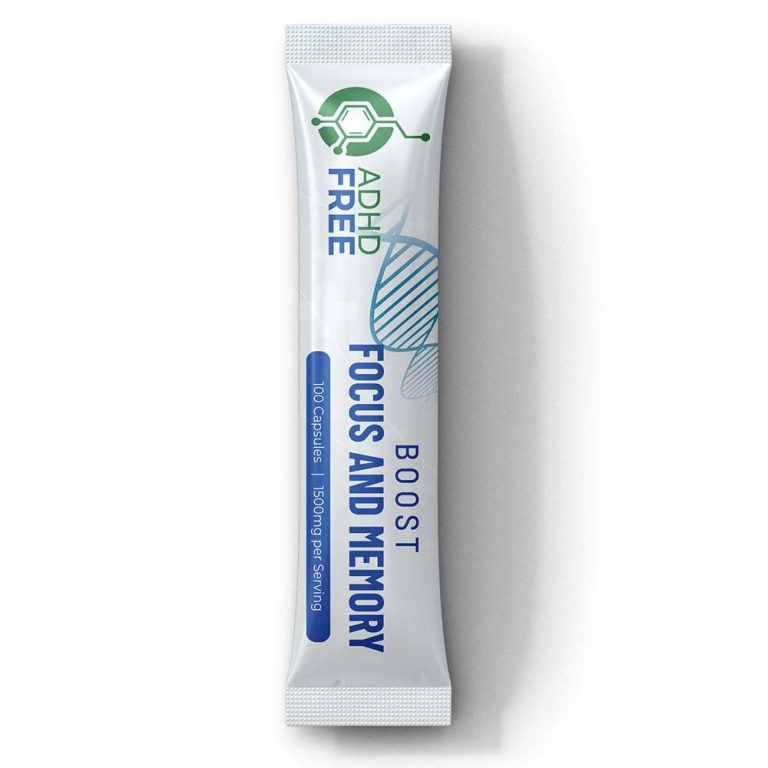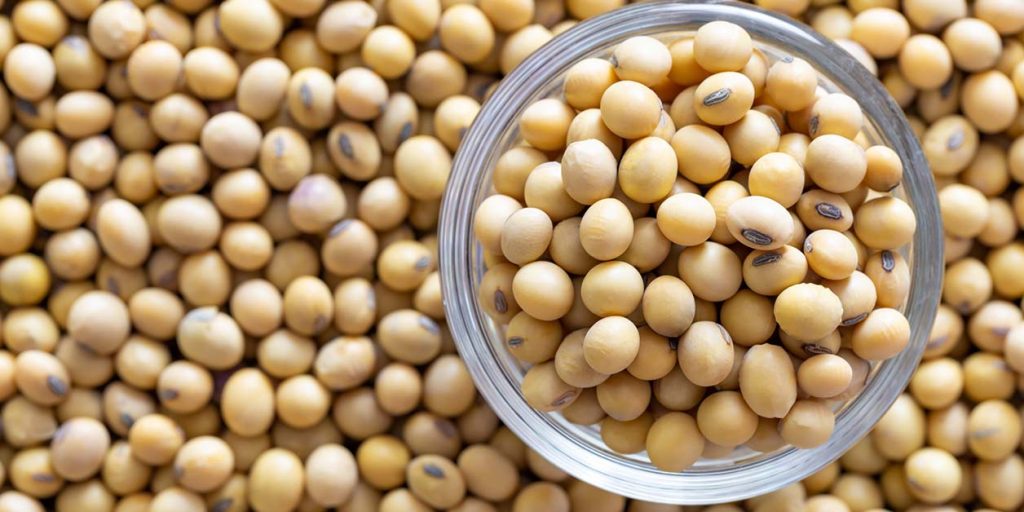Attention Deficit Hyperactivity Disorder (ADHD) is a common neurological disorder that affects people of all ages. One of the major challenges for individuals with ADHD is difficulty in recall and memory. Fortunately, there is a natural solution that can improve these cognitive functions – Ginkgo Biloba. This powerful herb has been used for centuries and has shown promising results in boosting memory and recall for those with ADHD. Are you struggling with memory and recall? Let’s explore how Ginkgo Biloba can help you.
What Is Ginkgo Biloba?
Ginkgo Biloba is a herbal supplement derived from the leaves of the Ginkgo Biloba tree. It has been used in traditional medicine for centuries and is believed to have various health benefits.
Ginkgo Biloba is known for its potential to improve cognitive function, including memory and recall. It is thought to work by increasing blood flow and oxygen to the brain. However, it is important to note that more research is needed to fully understand its effects and potential risks. If considering Ginkgo Biloba, it is advisable to consult with a healthcare professional to determine if it is suitable for you.
What Are The Benefits Of Ginkgo Biloba?
Ginkgo biloba, a popular herbal supplement, has been praised for its various health benefits. In this section, we’ll dive into the benefits of ginkgo biloba and how it specifically impacts the brain. From improving memory and cognitive function to reducing anxiety and depression, ginkgo biloba has been shown to have a positive impact on our mental well-being. Additionally, we’ll discuss how this supplement enhances blood flow and circulation, which can have a significant impact on brain function. Let’s explore the many benefits of ginkgo biloba.
1. Improves Memory and Cognitive Function
Ginkgo Biloba is a natural supplement known for its ability to improve memory and cognitive function. Here are some steps to consider when using Ginkgo Biloba for this purpose:
- Consult a healthcare professional: Before starting any new supplement, it’s important to consult with a healthcare professional to ensure it is safe for you.
- Choose a reputable brand: Look for a reliable brand that offers high-quality Ginkgo Biloba supplements.
- Follow the recommended dosage: Take the supplement as directed on the packaging or as advised by your healthcare professional.
- Be patient: It may take some time to notice improvements in memory and cognitive function. Consistency is key.
- Monitor side effects: While Ginkgo Biloba is generally safe, it’s important to be aware of any potential side effects and discontinue use if necessary.
2. Reduces Anxiety and Depression
Reducing anxiety and depression is one of the many benefits of using Ginkgo Biloba. Here are some steps to consider:
- Ginkgo Biloba acts as a natural anti-anxiety agent by modulating neurotransmitters and reducing stress hormones.
- It enhances the production of serotonin and dopamine, which are neurotransmitters associated with mood regulation and can help reduce anxiety and depression.
- The herb improves blood circulation in the brain, leading to better oxygen and nutrient supply, ultimately improving mood and reducing depressive symptoms.
- Ginkgo Biloba also has antioxidant properties, protecting brain cells from oxidative stress and inflammation, which can contribute to anxiety and depression.
3. Enhances Blood Flow and Circulation
Enhancing blood flow and circulation is one of the benefits of consuming Ginkgo Biloba. This can be achieved by following these steps:
- Ginkgo Biloba acts as a vasodilator, widening blood vessels and improving blood flow. This helps deliver oxygen and nutrients more efficiently to various parts of the body.
- Improved blood circulation can benefit those with conditions like Raynaud’s disease, as it helps regulate blood flow to extremities.
- Ginkgo Biloba may also help prevent blood clots by reducing platelet aggregation, reducing the risk of cardiovascular diseases.
- Studies suggest that Ginkgo Biloba can enhance microcirculation, which aids in better nutrient absorption and waste removal at a cellular level.
- Enhanced blood flow and circulation may also contribute to improved cognitive function and memory.
What Is ADHD?
ADHD, or Attention Deficit Hyperactivity Disorder, is a neurodevelopmental disorder that affects both children and adults. It is characterized by difficulties with attention, hyperactivity, and impulsivity. People with ADHD often struggle with organization, time management, and maintaining focus.
The exact cause of ADHD is unknown, but it is believed to involve a combination of genetic, environmental, and neurological factors. ADHD can have a significant impact on daily functioning and can affect various areas of life, including academics, work, and relationships. Proper diagnosis and treatment can help individuals with ADHD manage their symptoms and improve their quality of life.
How Does Ginkgo Biloba Help ADHD Patients?
For those with Attention Deficit Hyperactivity Disorder (ADHD), finding effective methods to improve cognitive function is crucial. One potential solution that has gained attention is Ginkgo Biloba, an herbal supplement known for its memory-boosting properties. In this section, we will delve into the ways in which Ginkgo Biloba can help individuals with ADHD. From increasing dopamine levels to reducing hyperactivity and impulsivity, we will explore the various benefits that this natural supplement offers for cognitive enhancement in ADHD patients.
1. Increases Dopamine Levels
Ginkgo Biloba can increase dopamine levels in the brain, resulting in several positive effects for individuals with ADHD.
- Enhanced Focus: The increase in dopamine levels can lead to improved attention and concentration, allowing individuals to maintain focus for longer periods of time.
- Mood Regulation: Dopamine plays a crucial role in regulating mood, and by increasing its levels, Ginkgo Biloba can help reduce mood swings and promote overall emotional well-being.
- Reduced Impulsivity: Higher dopamine levels can aid in controlling impulsive behaviors, reducing impulsivity and promoting better decision-making.
- Improved Motivation: Dopamine is often referred to as the “motivation molecule,” and by increasing its levels, Ginkgo Biloba can help individuals with ADHD feel more motivated and engaged.
2. Improves Executive Function
Improving executive function is one of the many benefits of using Ginkgo Biloba. This can be achieved through the following steps:
- Enhancing cognitive flexibility: Ginkgo Biloba helps individuals switch between tasks and adapt to changing situations more effectively.
- Improving decision-making: By increasing blood flow and oxygen to the brain, Ginkgo Biloba supports better decision-making abilities and ultimately improves executive function.
- Enhancing problem-solving skills: Ginkgo Biloba can boost problem-solving abilities by improving cognitive processes and increasing focus.
- Promoting self-control: Ginkgo Biloba may help individuals regulate impulses and resist distractions, leading to improved self-control and overall executive function.
- Supporting planning and organization: Ginkgo Biloba aids in mental clarity and organization, allowing for better planning and goal-setting, which are essential components of executive function.
3. Enhances Working Memory
Enhancing working memory is one of the many benefits of using Ginkgo Biloba for individuals with ADHD. This can be achieved through the following steps:
- Improved focus and attention: Ginkgo Biloba can reduce distractions and increase concentration, leading to improvements in working memory.
- Increased information retention: By improving blood flow and circulation to the brain, Ginkgo Biloba can enhance the storage and retrieval of information in working memory.
- Better cognitive processing: Ginkgo Biloba can enhance executive function, including the ability to plan, organize, and prioritize information, ultimately resulting in improved working memory.
These steps clearly demonstrate how Ginkgo Biloba can effectively enhance working memory in individuals with ADHD.
4. Reduces Hyperactivity and Impulsivity
Ginkgo biloba has been found to be effective in reducing hyperactivity and impulsivity in individuals with ADHD. If you are considering using ginkgo biloba for this purpose, here are some steps to follow:
- Consult with a healthcare professional to determine the appropriate dosage and ensure it is safe for you or your child.
- Begin with a low dose and gradually increase as needed, following the recommended dosages for individuals with ADHD.
- Monitor for any potential side effects, such as headaches or stomach upset.
- Consider combining ginkgo biloba with other recommended treatments for ADHD, as advised by your healthcare provider.
- Regularly assess the effectiveness of ginkgo biloba in reducing hyperactivity and impulsivity, and make adjustments if necessary.
What Are The Recommended Dosages Of Ginkgo Biloba For ADHD Patients?
In order to reap the potential benefits of Ginkgo Biloba for ADHD patients, it is crucial to understand the recommended dosages for different age groups. This section will focus on the appropriate amount of Ginkgo Biloba for children and adults, respectively. By exploring the varying dosages, readers can gain a better understanding of how this herbal supplement can potentially boost recall and memory in individuals with ADHD.
1. For Children
- Consult a healthcare professional: Before giving ginkgo biloba to children, it is important to consult with a healthcare professional who can provide guidance based on the child’s specific needs.
- Consider the child’s age: The recommended dosage of ginkgo biloba for children may vary depending on their age. Younger children may require smaller doses.
- Start with a low dosage: It is generally recommended to start with a low dosage of ginkgo biloba and gradually increase it if necessary.
- Monitor for any side effects: Keep an eye out for any potential side effects and discontinue use if any adverse reactions occur.
- Follow the recommended dosage: Adhere to the recommended dosage guidelines provided by the healthcare professional or the product packaging.
True story: Sarah, a concerned mother, sought advice from her child’s pediatrician before giving ginkgo biloba to her 8-year-old son with ADHD. The doctor recommended starting with a low dosage and closely monitoring any changes in behavior or side effects. Sarah diligently followed the guidelines and noticed improvements in her son’s focus and attention span after a few weeks. With the right guidance and cautious approach, ginkgo biloba became a helpful addition to her son’s ADHD management.
2. For Adults
For adults, the recommended dosage of Ginkgo Biloba for ADHD patients may vary. Here are some steps to consider when using Ginkgo Biloba for ADHD in adults:
- Consult with a healthcare professional to determine the appropriate dosage based on your specific needs and health condition.
- Start with a lower dosage and gradually increase it if needed, based on the recommendations of your healthcare provider.
- Take Ginkgo Biloba supplements as directed, preferably with meals to enhance absorption.
- Monitor your response to the supplement and any potential side effects. Adjust the dosage if necessary, under the guidance of your healthcare provider.
- Combine Ginkgo Biloba with other ADHD management strategies, such as therapy or lifestyle changes, for optimal results.
Are There Any Side Effects Of Using Ginkgo Biloba For ADHD?
While Ginkgo Biloba has been shown to improve memory and recall in individuals with ADHD, it is important to also consider any potential side effects that may come with its use. In this section, we will discuss the possible side effects of using Ginkgo Biloba for ADHD, including headaches and dizziness, stomach upset, and allergic reactions. By understanding these potential risks, individuals can make an informed decision about incorporating Ginkgo Biloba into their treatment plan for ADHD.
1. Headaches and Dizziness
Headaches and dizziness are potential side effects of using Ginkgo Biloba for ADHD. Here are some steps to manage these side effects:
- Start with a low dosage: Begin with a small amount of Ginkgo Biloba and gradually increase it to allow your body to adjust.
- Stay hydrated: Drink plenty of water throughout the day to prevent dehydration, which can contribute to these symptoms.
- Take breaks: If you experience these symptoms, take breaks from activities that require focus and rest until they subside.
Pro-tip: Consult with a healthcare professional before using Ginkgo Biloba for ADHD to determine the appropriate dosage and to discuss any potential side effects.
2. Stomach Upset
Stomach upset can be a potential side effect of using ginkgo biloba for ADHD. To minimize the risk, follow these steps:
- Start with a low dosage of ginkgo biloba.
- Take the supplement with food to help alleviate stomach upset.
- Drink plenty of water to stay hydrated and aid digestion.
- Monitor your body’s response and adjust the dosage if necessary.
- If stomach upset persists, consult a healthcare professional for guidance.
Sarah, an ADHD patient, experienced stomach upset when she started taking ginkgo biloba. By following these steps and working closely with her doctor, she was able to find the right dosage that alleviated her symptoms and improved her ADHD symptoms without any stomach issues.
3. Allergic Reactions
Allergic reactions to Ginkgo Biloba are possible but rare. If you experience any adverse effects after taking Ginkgo Biloba for ADHD, follow these steps:
- Stop taking Ginkgo Biloba immediately if you notice any symptoms of an allergic reaction, such as a rash, itching, or swelling.
- Contact your healthcare provider to report the reaction and seek medical advice.
- Inform your doctor about any known allergies or sensitivities to herbal supplements before starting Ginkgo Biloba.
- Seek emergency medical attention if you experience severe symptoms, such as difficulty breathing or swelling of the face, lips, tongue, or throat.
Frequently Asked Questions
What is Ginkgo Biloba and how does it work to boost ADHD brain’s recall and memory?
Ginkgo Biloba is a herbal supplement derived from the leaves of the Ginkgo tree. It contains antioxidants and flavonoids that can improve blood flow and stimulate brain activity, resulting in improved recall and memory function in individuals with ADHD.
Is Ginkgo Biloba safe for children with ADHD?
Although Ginkgo Biloba is generally considered safe for adults, its use in children with ADHD is not recommended. There is limited research on its effects in children and potential side effects. It is best to consult with a healthcare professional before giving Ginkgo Biloba to a child with ADHD.
How long does it take for Ginkgo Biloba to show its effects on ADHD brain’s recall and memory?
The effects of Ginkgo Biloba on ADHD brain’s recall and memory may vary from person to person. Some individuals may experience improvements within a few weeks of regular use, while others may take longer. It is important to be patient and consistent with taking the supplement to see its full benefits.
Can Ginkgo Biloba be used as a sole treatment for ADHD?
No, Ginkgo Biloba should not be used as a sole treatment for ADHD. While it can help improve recall and memory function in individuals with ADHD, it is not a substitute for medical treatment or therapy. It is best used as a supplement to existing treatment plans.
Are there any potential side effects of taking Ginkgo Biloba for ADHD?
Some individuals may experience mild side effects such as headache, dizziness, and upset stomach while taking Ginkgo Biloba. It may also interact with certain medications, so it is important to consult with a healthcare professional before starting to take the supplement.
How can I ensure the effectiveness of Ginkgo Biloba for boosting ADHD brain’s recall and memory?
To ensure the effectiveness of Ginkgo Biloba, it is important to choose a reputable brand and follow the recommended dosage. It is also crucial to maintain a healthy lifestyle, including a balanced diet and regular exercise. Lastly, it is essential to continue any prescribed medical treatment and therapy for ADHD.







